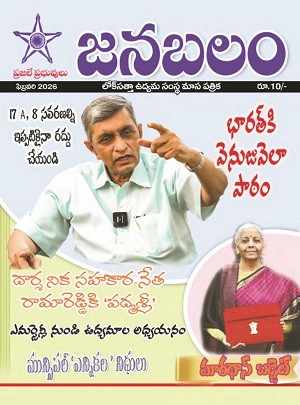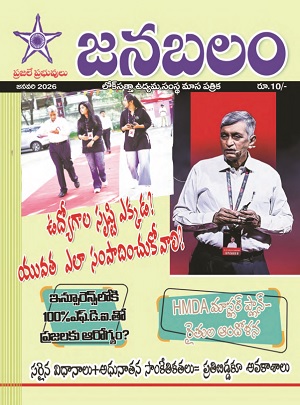In India, for our size and diversity, we probably have the smallest number of final decision-makers—the prime minister, the chief ministers and occasionally the district magistrate or the Supreme Court.
India embraced universal franchise in a daring and unusual way. Until then, no other poor nation with no real experience of democratic institutions opted for universal franchise from its inception. It is a tribute to our leaders of the time that they successfully built functional democratic institutions. As a result, despite seemingly insurmountable obstacles, freedom has been preserved, peaceful transfer of power through the ballot has been institutionalized, a successful and mature federalism has evolved, unity has been strengthened in a complex, multi-ethnic, caste-ridden, multi-lingual society, and moderate economic progress has been witnessed.
However, we could have done a lot better. There is too much gap between our potential and our achievements, and relative to other comparable nations, we have fallen far behind. Some people tend to blame our failures on our democracy. They look at mighty China or successful Singapore or modern South Korea and lament that too much democracy and politics held us back.
They are wrong. There is no substitute to democracy, and the failings of democracy can only be overcome by more democracy, not extinguishing liberty.
Look at a residents’ welfare association: All households pay the maintenance cost (taxes), they expect commensurate services (security at the gate, proper parking, functioning elevator, regular water supply, decent internal roads, efficient drainages and sewerage and, in general, value for money), bring pressure to improve common amenities, elect competent people who can deliver, and hold to account the managing committee. In other words, clear links are established between vote and common benefits, maintenance costs (taxes) and services, and authority and accountability. Democracy works optimally and produces sensible outcomes.
It is said that the US has the largest number of final decision-makers; the sphere of authority may be limited, but it is finally subject to constitutional liberties. In India, for our size and diversity, we probably have the smallest number of final decision-makers—the prime minister, the chief ministers and occasionally the district magistrate or the Supreme Court. Such a centralized system in a democratic milieu is bound to be dysfunctional.
Every great accomplishment in India was a result of local or sectoral initiative and leadership, delegation of power and devolution of resources with accountability. Take the success of the Indian Space Research Organization, the milk revolution engineered by Verghese Kurien, the green revolution, the remarkably efficient conduct of elections, disaster relief, management of VIP visits or the many isolated successes of great innovators and public servants that serve as best practices for replication—all are products of horizontal or vertical delegation, local leadership, fusion of authority and accountability, and active and sustained participation of stakeholders.
Our lip sympathy for democratic decentralization has never reached full fruition. While states today are stronger and more autonomous in a federal polity than ever before, the governance structure of states is controlled by the Constitution with no local flexibility. In no other democracy does the federal Constitution dictate the manner of election of the executive or legislature and the structure of bureaucracy at state level, or the constitution of local governments.
While perfunctory efforts have been made to establish local governments, they only resulted in over-structured, underpowered, feeble and ineffective local governments. The state legislator and the senior bureaucrat have become arch enemies of local governments, feeling threatened by their rise. Even the otherwise impressive Finance Commission is only allocating paltry grants to local governments, and despite their constitutional status, there is no assured share of Union and state tax revenues to them.
There is no reason to have romantic notions about local politicians and bureaucrats. Rapacity, vote buying, corruption and incompetence are as pronounced at the local level as they are in larger tiers. The only answer is effective empowerment, devolution of adequate resources, and strong, independent local ombudsmen to enforce accountability. Only then will citizens value their vote, learn from their mistakes, pay the price for bad decisions and mature as real stakeholders in a democracy.
Decentralization is not merely for local governments; it extends to greater flexibility for states within the boundaries of constitutional freedoms and the unity and integrity of India, and the empowerment of all kinds of stakeholders from cooperatives to schools, local housing colonies to self-help groups.
Today, citizens often pay bribes for public services which are their right; our water, power, roads, drainage, education and healthcare are of appalling quality; most of our tax money is squandered and whoever is elected, there is no real perceptible change. Our leaders asked the British to leave on the ground that good government is no substitute to self-government. Today the struggle is between centralized, bad government and self-government. There is no contest.
Jayaprakash Narayan is the founder of the Lok Satta movement and Foundation for Democratic Reforms.
Published as part of a series on the book Liberalism in India: Past, Present and Future published recently by Centre for Civil Society. The book is a collection of essays written in honour of the late S.V. Raju.
Monday, December 5, 2016
Subscribe to:
Post Comments (Atom)





No comments:
Post a Comment